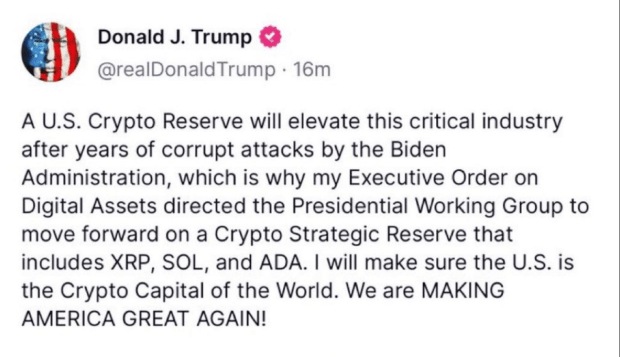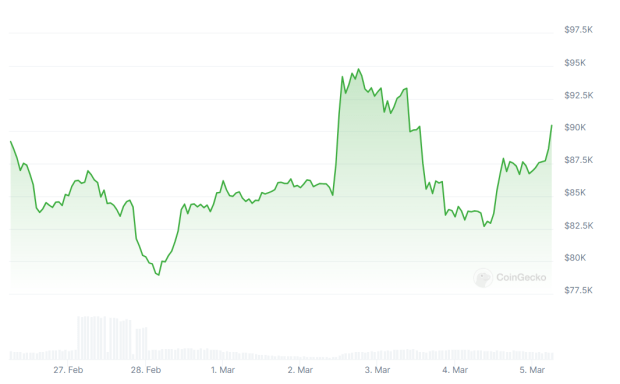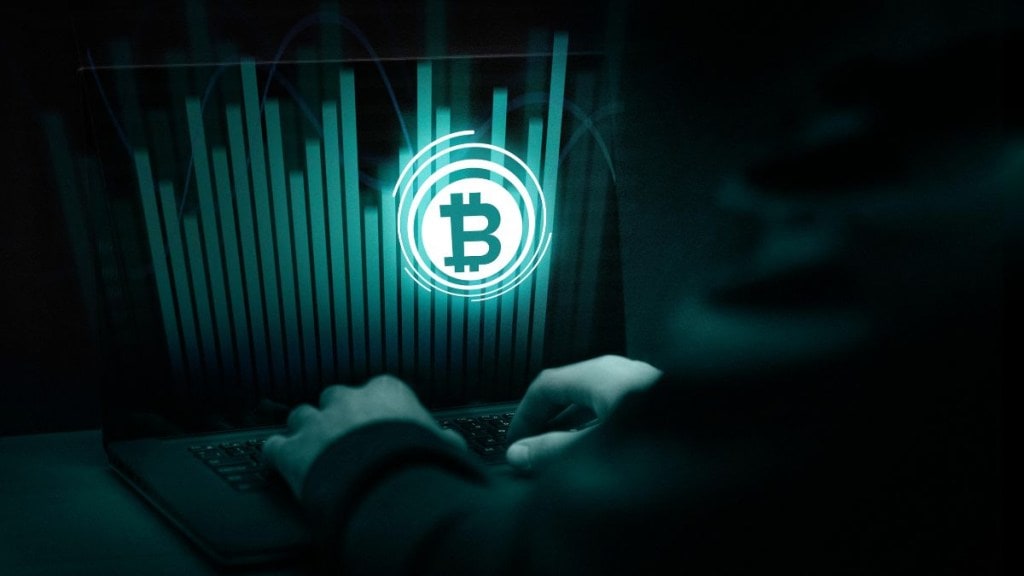On March 2nd, 2025, Donald Trump posted on Truth Social announcing his intention to create a Strategic Crypto Reserve for the United States.

A follow-up post clarified that the reserve portfolio would include Bitcoin and Ethereum. This announcement immediately sent Bitcoin’s price soaring from $78,000 to $94,000, especially after the 20% tariff drawdown.

But what exactly is a Strategic Reserve, and does crypto belong in one?
Understanding Strategic Reserves
A strategic reserve is a stockpile of critical resources a government maintains to hedge against emergencies, crises, or economic instability. Some well-known examples include:
- Strategic Petroleum Reserve (SPR): A government-controlled oil stockpile used to stabilize fuel prices or ensure energy security during geopolitical crises.
- Strategic Military Reserve: A stockpile of weapons, ammunition, and resources for national defense.
By this definition, a Strategic Crypto Reserve would imply the U.S. government is actively accumulating and holding cryptocurrencies as a national financial hedge. But is that a wise strategy?
The U.S. Government Already Owns Bitcoin
Currently, the U.S. government owns over 200,000 BTC, mostly acquired through seizures from criminal cases like Silk Road and other hacks. Some experts argue this could form the foundation of a National Crypto Reserve, especially since it doesn’t require Congressional approval—a key advantage.
Trump’s proposal isn’t entirely new. In July 2024, at the Bitcoin Conference in Nashville, he promised to establish a Strategic National Bitcoin Reserve. His pro-crypto stance was a major reason why the crypto industry overwhelmingly backed his campaign. Joe Biden’s administration, particularly SEC Chair Gary Gensler, had aggressively targeted crypto companies, causing industry leaders to shift their political support to Trump.
Crypto vertical became the largest donor base to Trump’s election campaign, funneling millions into Republican candidates nationwide. Following his victory, Trump doubled down by appointing a “Crypto and AI Czar.” And nominating a crypto-friendly SEC chair.
Is a Strategic Crypto Reserve Justified?
The big question: Is a Strategic Crypto Reserve actually “strategic”?
I argue it is not, for several reasons:
- It Uses Taxpayer Money for Speculation
- Unlike oil, a consumable resource with clear national security value, Bitcoin and Ethereum do not stabilize the economy or protect against immediate crises.
- It is morally questionable to force taxpayers who do not believe in Bitcoin to fund its accumulation.
- Bitcoin Is Highly Volatile
- While Bitcoin has historically appreciated, it has also faced 80%+ drawdowns multiple times in history.
- A government balance sheet would be constantly rewritten, leading to inevitable political controversies.
- It Won’t Drive Innovation
- Trump wants America to drive innovation in crypto, but buying Bitcoin doesn’t fund startups or development.
- Innovation comes from American entrepreneurs, developers, and investors—not government stockpiles.
The Government’s Track Record on Innovation Funding
Government funding rarely fosters true innovation. History shows that government-backed projects often fail while private enterprise succeeds:
- The CHIPS Act poured billions into Intel, yet Nvidia dominated AI chips without government aid.
- In the 1800s, Samuel Langley received government funds to build an airplane—he failed. Meanwhile, the Wright brothers, working privately, without any funding from their bicycle shop and succeeded.
- NASA gave Boeing 10x the funding SpaceX received—yet Boeing struggles to complete a single crewed mission, while SpaceX has completed 11+ successful flights.
If Trump wants to support crypto innovation, he should focus on removing regulatory barriers rather than having the government act as a speculative investor.
Can Bitcoin Help with Inflation and National Debt?
Some proponents argue that Bitcoin’s appreciation could help pay off national debt. But this ignores key risks. Bitcoin doesn’t generate cash flow (no dividends, no interest). Custody of Bitcoin at a national level could be a major vulnerability leading to major security risk and embarrassment if such a hack happens. Bitcoin’s value is based primarily on the belief network effect—its price rises only as more people buy in.
If the U.S. wants to curb inflation, it simply needs to stop printing money—not hoard Bitcoin.
Other Countries’ Bitcoin Reserves
While Trump’s proposal is controversial, some other nations and sovereign wealth funds are already experimenting with Bitcoin reserves:
- El Salvador: Made Bitcoin legal tender in 2021, establishing a national reserve.
- Bhutan: Uses hydropower to mine Bitcoin, integrating it into their economy.
- Abu Dhabi’s sovereign wealth fund bought over $450M in Bitcoin ETFs in Q4 2024.
- Norway’s sovereign wealth fund holds $500M in Bitcoin exposure via MicroStrategy and Coinbase shares.
However, the largest government-held Bitcoin reserves (U.S., China, UK) were acquired through seizures, not active purchases. Historically, these governments auctioned off seized Bitcoin rather than holding it as a long-term asset.
Crypto Twitter’s Response: No Centralized Coins
Trump’s post sparked a backlash on Crypto Twitter, especially regarding portfolio composition. Many vehemently opposed including centralized tokens like SOL, ADA, or XRP in the reserve.
I argue that if the government is going to buy assets with taxpayer money, why not buy stocks like Apple, Microsoft, Facebook, or Nvidia instead?
The philosophical question is Should a pro-free-market government even be managing an investment portfolio?
The hope among Bitcoin supporters is that if a reserve is formed, it will focus solely on Bitcoin, as it is the only truly decentralized asset.
Final Thoughts: Will Common Sense Prevail?
While the Strategic Crypto Reserve may sound exciting to crypto enthusiasts, it is not a strategic necessity. Governments should focus on creating a favorable environment for crypto businesses, not speculating on asset prices.
Trump’s pro-crypto stance is refreshing compared to Biden’s regulatory hostility.
In the end, the real value of Bitcoin is in its decentralized nature—not in government control.
What will the Indian government do? Will they hold some bitcoin along with the gold they hold? Is there any real reason to hold gold in any reserve anymore be it US or India? It is not like if we take our 100$ note to the Federal Reserve or 100 Rupee note to the Central Bank they will give us gold for it anyway. They will just give you another note.
Nithin Eapen is a technologist and entrepreneur with a deep passion for finance, cryptocurrencies, prediction markets and technology. You can write to him at neapen@gmail.com. He writes the weekly column Creed, Capital and Crypto for Financial Express.
Disclaimer – The website managers, its employee(s), and contributors/writers/authors of articles have or may have an outstanding buy or sell position or holding in the securities, options on securities or other related investments of issuers and/or companies discussed therein. The content of the articles and the interpretation of data are solely the personal views of the contributors/ writers/authors. Investors must make their own investment decisions based on their specific objectives, resources and only after consulting such independent advisors as may be necessary.

